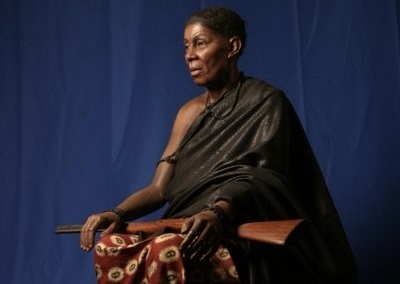
In 1900, Nana Yaa Asantewaa led one of the most defining uprisings against British colonial rule in Ghana, known as the War of the Golden Stool. This rebellion was sparked by an audacious demand from the British governor for the sacred Golden Stool, a revered symbol of Ashanti unity, authority, and sovereignty.
At the time, Yaa Asantewaa held the position of Gatekeeper of the Golden Stool, a role deeply rooted in the preservation of Ashanti traditions and leadership. When the Ashanti leaders convened to discuss the British governor’s demand, there was hesitation and murmurs of possible surrender. In this critical moment, Queen Mother Yaa Asantewaa rose with fiery determination and delivered words that would become immortal:
“Now I have seen that some of you fear to go forward to fight for our King.
If it were in the brave days of Osei Tutu, Okomfo Anokye, and Opoku Ware, leaders would not sit down to see their King taken away without firing a shot.
No white man could have dared to speak to a leader of the Ashanti in the way the Governor spoke to you this morning.
Is it true that the bravery of the Ashanti is no more? I cannot believe it. It cannot be!
I must say this, if you the men of Ashanti will not go forward, then we will.
We, the women, will. I shall call upon my fellow women. We will fight the white men. We will fight till the last of us falls in the battlefields.”
The War of the Golden Stool
This historic rebellion began in March 1900, with Yaa Asantewaa leading an army of 5,000 warriors. The Ashanti forces laid siege to the British fort at Kumasi, where the colonial officers had sought refuge. The fort, now the Kumasi Fort and Military Museum, stands as a testament to this fierce resistance.
Although the rebellion lasted several months, it was ultimately subdued when the British governor deployed 1,400 soldiers to crush the uprising. Queen Yaa Asantewaa, along with fifteen of her closest advisers, was captured and exiled to the Seychelles.
Despite the rebellion’s end, the War of the Golden Stool became the final act of resistance in the series of Anglo-Asante wars that had persisted throughout the 19th century. In January 1902, the Ashanti Empire officially became a British protectorate.
Legacy and the Return of Yaa Asantewaa’s Spirit
Yaa Asantewaa passed away in exile on 17 October 1921, but her legacy continued to inspire. Three years after her death, in 1924, the exiled Asante royal court, including Prempeh I, was allowed to return to their homeland. Prempeh I ensured that the remains of Yaa Asantewaa and the other exiles were brought back to Asante for a royal burial, honoring her as a national hero.
Her dream of a liberated Ashanti people came to fruition on 6 March 1957, when Ghana became the first sub-Saharan African country to gain independence from colonial rule. This monumental achievement fulfilled the aspirations of Yaa Asantewaa and other freedom fighters who laid the groundwork for African sovereignty.
Modern-Day Honors
Today, Yaa Asantewaa’s courage and leadership are celebrated in Ghana and across the world. On August 3, 2000, a museum dedicated to her memory was established in Kwaso, in the Ejisu-Juaben District of Ghana. The Ashanti region remains a proud cultural and administrative hub where Twi, the Akan language of the Ashanti people, thrives.
Her rallying cry, a profound statement of defiance and resilience, continues to inspire:
“If you, the men of Asante, will not go forward, then we will!
We, the women, will!
I shall call upon my fellow women. We will fight!
We will fight till the last of us falls in the battlefields!”
Yaa Asantewaa’s story is a powerful reminder of the enduring strength of women in leadership, resistance, and the preservation of cultural heritage.




